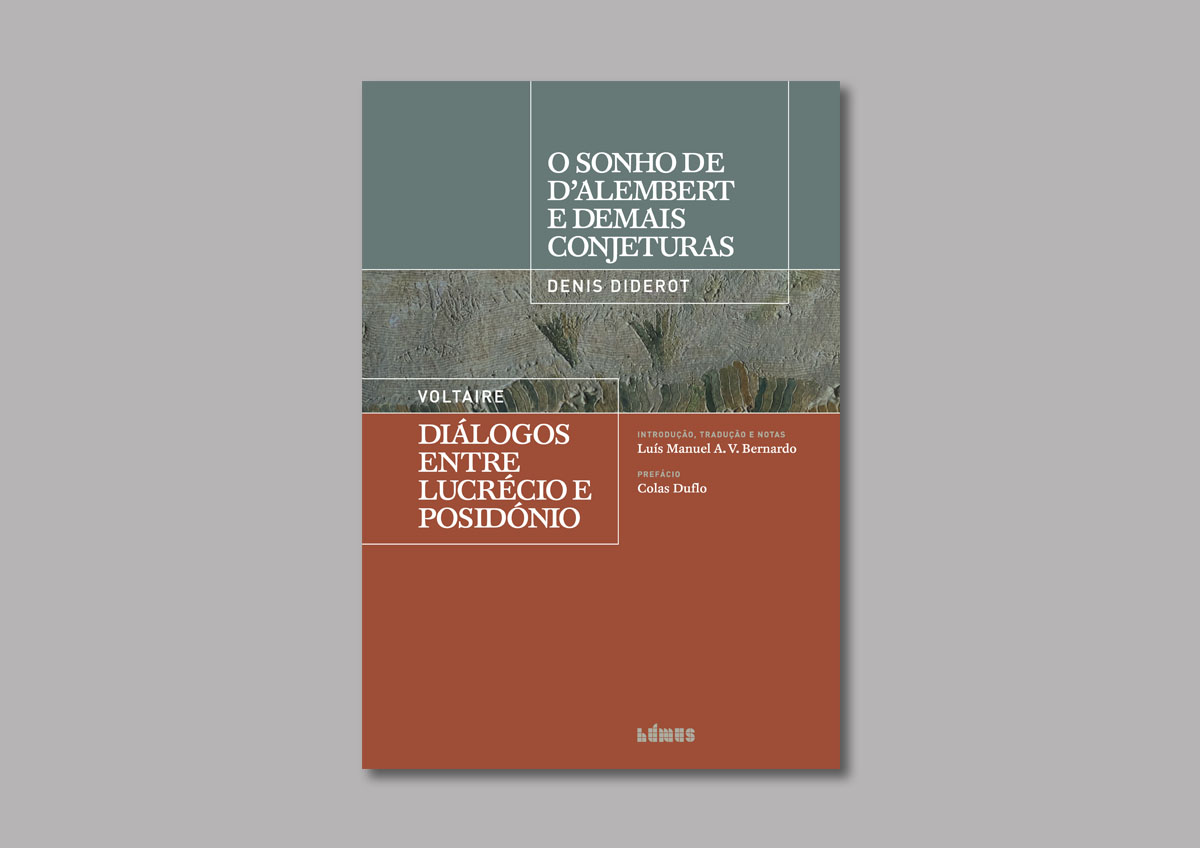
A volume has just been published by Húmus with the works O Sonho de D’Alembert e Demais Conjeturas, by Denis Diderot, and Diálogos entre Lucrécio e Posidónio, by Voltaire, with an introduction, translation and notes by Professor and EPLab member Luís Manuel Bernardo.
Written in the middle of the eighteenth century, marked by the Enlightenment worldview of the French philosophes, the texts that are translated and annotated here, including Le rêve de d’Alembert, one of Denis Diderot’s masterpieces, discuss the idea of a living and sensitive Nature, capable of producing the diversity of beings, along with the order that unifies them. In the search for a new science, they propose thought experiments around eloquent imagery nuclei, atoms, statues, bees, spiders, carnations, books, monasteries; they give rise to philosophical, scientific, and theological arguments for or against a purely materialistic explanation, in which God becomes useless; they seek to invent another prose of the world, mixing textualities and confronting the main interdicts of the time; They blur disciplinary and social boundaries in the name of the desire to know and the universal right to satisfy it. Critical and controversial, they are essential for thinking about the meaning of Modernity.
D. Diderot, O Sonho de D’Alembert e Demais Conjecturas / Voltaire, Diálogos entre Lucrécio e Posidónio
Bernardo, L. M. (Transl.)
ISBN 9789897559044
Order here.

